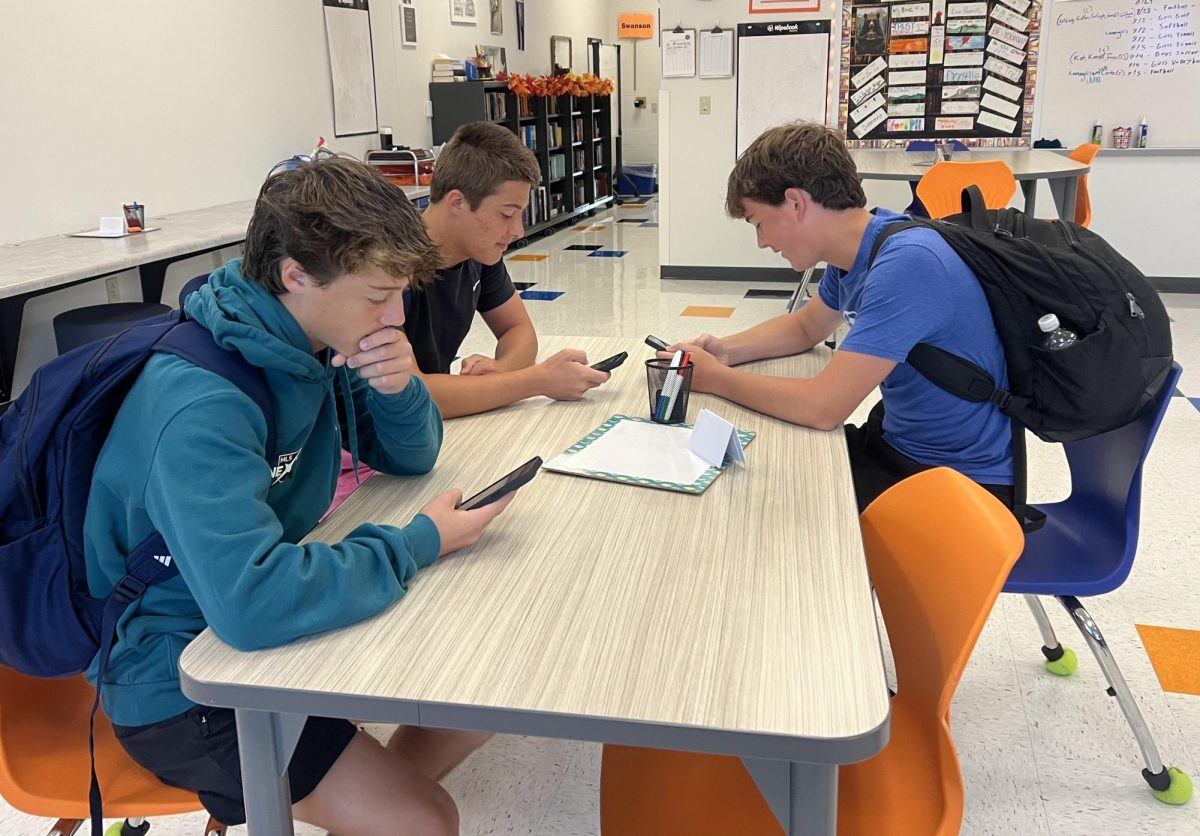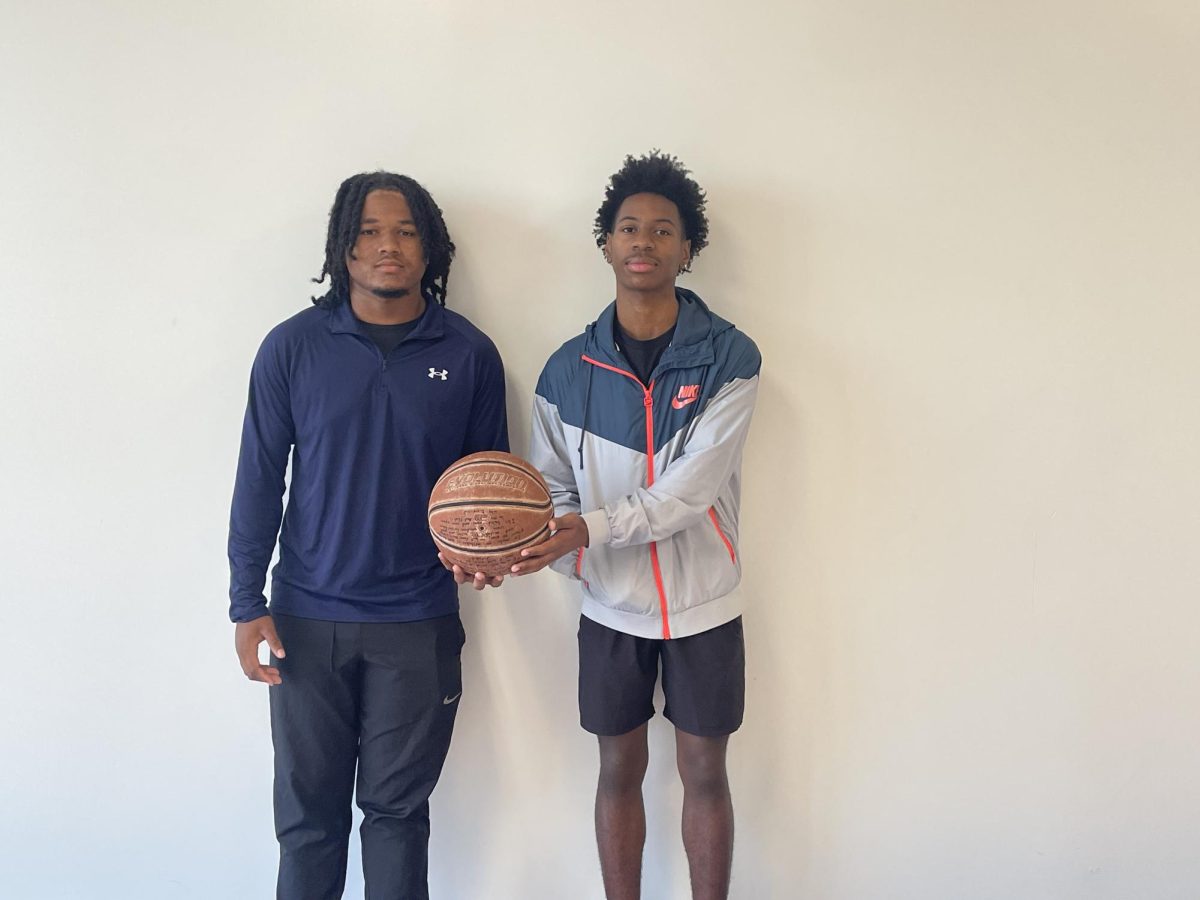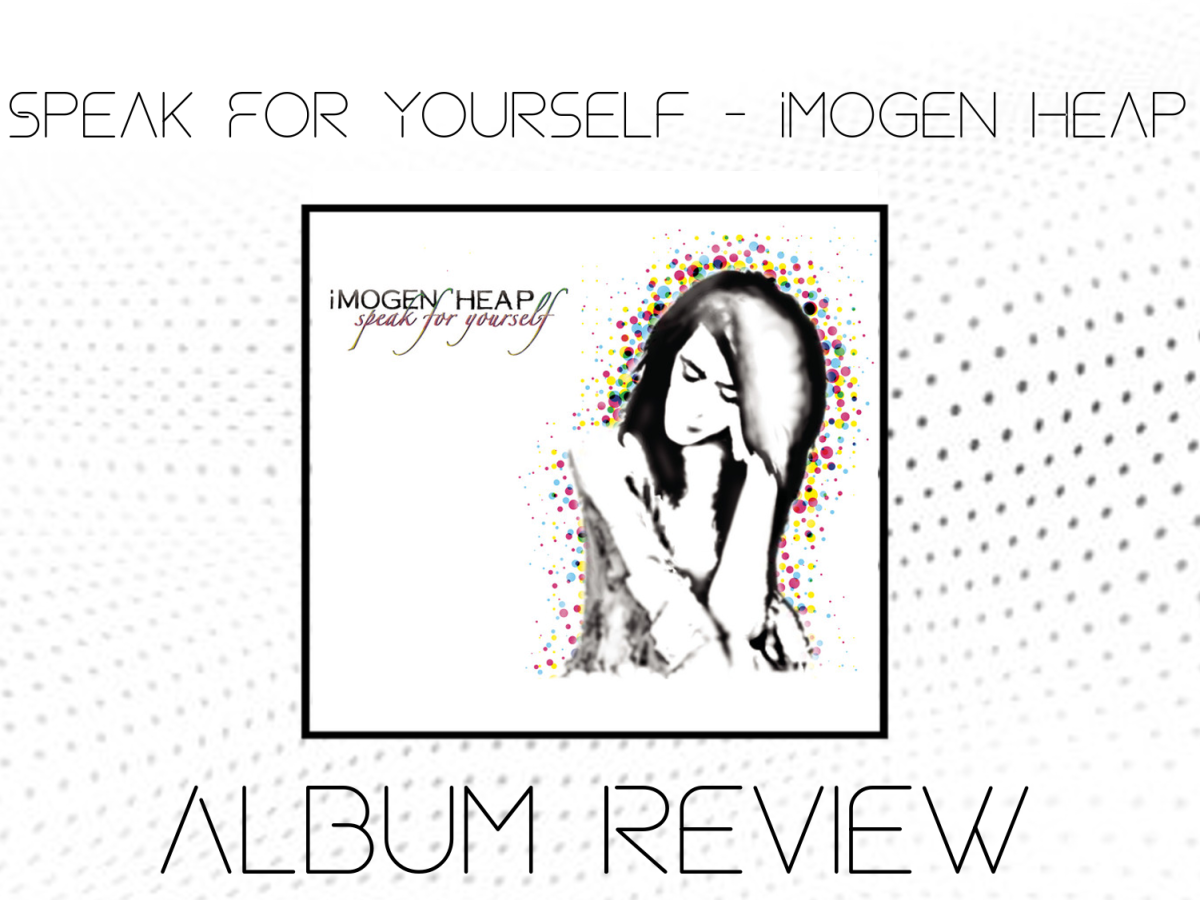Imogen Heap has leapt in and out of discussion ever since she started her career, as her influence within the music industry is undeniable. She has created a loving cult following over her 27 years as a singer-songwriter and producer, Whether it be through her songs being sampled in pop songs or cloud rap beats, or through her various songs that have been used and popularized through trends online.
In 2024, she had another big jump in popularity through social media with her songs “Headlock” and “Just For Now,” both off of her second debut album “Speak For Yourself.”
Coming at around 12 tracks in 49 minutes, Imogen Heap crafts a strange but lively world through influence and usage of electropop, along with genres such as pop rock. Whether it be through lively pop songs to emotional ballads, Imogen is not afraid to take risks to pull off unique sounding instrumentals with experimental production.
“Headlock” dramatically opens the album, with sounds of her own vocals along with what sounds like a glockenspiel and backing violin strings. From there, Imogen paints an image of someone’s struggles within a toxic relationship, despite wanting to stay in it. The song leaps to a tremendous chorus with a string ensemble triumphantly playing in intervals while the track reaches its crescendo. It is a fantastic intro to the album that shows the capabilities of Imogen’s dark lyricism and ever-changing songwriting and production.
While “Headlock” is about conflict during a relationship, “Goodnight and Go” starts as a cute story of falling in love that very quickly turns into a twisted and unhealthy obsession. While the song itself is one of the more upbeat and “fun-sounding” on the album, the lyrics describe the lengths that Imogen or the certain “protagonist” of the song goes to yearning for their interest.
Imogen’s lyrical style along with her already expressive singing is very unique, with her often using shifting perspectives and quotes from whatever is happening in the songs to paint a full picture. “Just For Now” does this by portraying a family argument at the dinner table.
“Have You Got It In You?” lyrically brings back more of that abstract lyricism, with Imogen possibly portraying the feelings of anxiety or of feeling rushed in the world that she lives in. The song feels visceral, as Imogen vaguely describes everything happening to her and around her while questioning herself constantly. It is a very relatable song about anxiety in your modern routine that I’m sure many of us have felt before from time to time.
“Loose Ends” was a point on the album that surprised me, as it did sound like what I had heard already from Imogen Heap up to this point, but I was surprised to hear how loud and rock-like she had leaned towards on this song. The two climactic moments where she sings “liar” at a high pitch while a striking guitar harmonizes with her sounds amazing, and the rest of the song is brings back a lot of that danceable electro pop sound that could be heard on “Headlock” and “Goodnight and Go.”
What many consider to be Imogen’s magnum opus is “Hide and Seek,” a four minute acapella ballad that departs from the album’s more active and pop-centric sound. Many may be able to recognize it due to its sample being used in the popular song “Whatcha Say?” by Jason Derulo, as the iconic lyric “mm, whatcha say” was used as the main hook and chorus of it.
The original is one of the most beautiful moments on the album despite the complex backing instrumentations from the previous tracks being completely stripped away in place of only Imogen’s vocals. Filtered through what I believe was a talkbox vocoder attached to a keyboard, she was able to create the choir-like sound to her voice that we hear.
The track itself sees Imogen reflecting her experience with her parents divorcing as a child, and how she knew how shattering it was despite her parents saying it was for the best, and eventually being manipulated by each as a way to get back at one another. To her, they do not care for their child, despite them making it seem like they do.
“Clear the Area” is another groovy track with what sounds like another looping vibraphone paired with a backing piano and bass. To me, it sounds like the most organically produced song yet on the album, and is a nice breather after the emotional climax of “Hide and Seek.”
“Daylight Robbery” is similar to “Loose Ends” in how much more intense it sounds compared to earlier tracks. The re-inclusion of the electric guitar sounds even rougher, almost feeling like it is mixed similarly to how it would be on a metal song. There is even a section where it builds, getting louder and louder to a climactic point, before switching back to the main groove.
“The Walk” is one of my personal favorites off the album. While it is nearly the longest song on the album, it does not particularly feel like it meanders like “Do You Have It In You?” Instead, the song builds gradually, with amazing instrumentation from what we have seen up to this point being mixed all together. Whether it be the catchy hook backed by the triumphant string section to the sudden breakdown with the electric guitar, this song has everything.
The song sees Imogen dealing with the fear of being in an intimate relationship, to a point of lashing out against the partner, saying that it is their fault for this trouble.
“I read this as an expression of fear from a person who faces the Hedgehog Dilemma – they are attracted to a potential partner yet they are scared of becoming too intimate, risking ruining what relationship they already have,” an anonymous user on Genius stated in their annotation.
“Just For Now” is a lot quieter, but still keeps that lush production seen in tracks like “Headlock.” Like it, backing strings accompany a lounge-like drum loop and minimal melodic chimes and pallets. Imogen’s voice sounds a lot more emotive here, as she is singing events that are happening throughout the song. As said earlier, it portrays a family arguing during Christmas, a time of celebration and appreciation for one another.
While not as high energy, “Just For Now” is an incredible highlight that shows Imogen’s lyrical ability.
“I Am In Love With You” again switches up the tone of the album with what is by far the grooviest track. The crunchy synth pattern that repeats along with the 80’s reminiscent drums create a fun atmosphere, and Imogen sings a progressively changing love song about her love for a partner, and eventual dissatisfaction for them.
As said earlier with her lyrical abilities, I love that Imogen takes these topics and creates little stories with them throughout the album, whether it be falling out of love on “I Am In Love With You,” to the rising chaos of a family gathering in “Just For Now.”
“Closing In” is probably my least favorite song on the album, with it having cool ideas that just come off as a little forgettable. I do love the trippy drum pattern that sets up a certain rhythm, before Imogen along with the rest of the instruments subverse it and make an entirely new one. This is also the only track that comes off a little too vague lyrically for me, however I’d assume it is about her reluctance and confusion for a partner who is fearful of their love. It reminds me a bit of “The Walk” in terms of the relationship.
Perhaps the meaning of the lyric “Closing In” represents the other partner’s perspective and awareness of rising intensity to which the relationship has come to.
“The Moment I Said It” is a quieter but more serious closer to the album, with Imogen using whispers along with singing to create the structure of the bridge, saying “smash” to represent the conflict.The song lyrically follows her watching as her partner completely breaks out in a fit of anger. She describes him smashing items in the house, and how she has never seen him like this before, trying to calm him down before things get worse.
This ending to the track and the album could possibly signify a resolution to the conflict in “Headlock,” with the “bye bye bye…” lyric insinuating that she is leaving after what had happened. In fact, a lot of the songs here describing all of these rocky scenarios within a relationship could perhaps be connected to each other. However, Imogen has never stated whether or not this is true, and the album doesn’t seem to be much of a conceptual piece, so it truthfully is just a theory. It is interesting to think about, though.
“Speak For Yourself” below its surface is a well-crafted journey with serious reflections about love, self confidence, and the struggles of being in a relationship, all built up by the album’s wide range of electropop and rock. While some moments are a little vague lyrically and some songs can meander or come off as a little forgettable, the moments on this album that are positive bring what are genuinely some of the best pop and indie music you can find. I would give this album an eight out of 10.

























